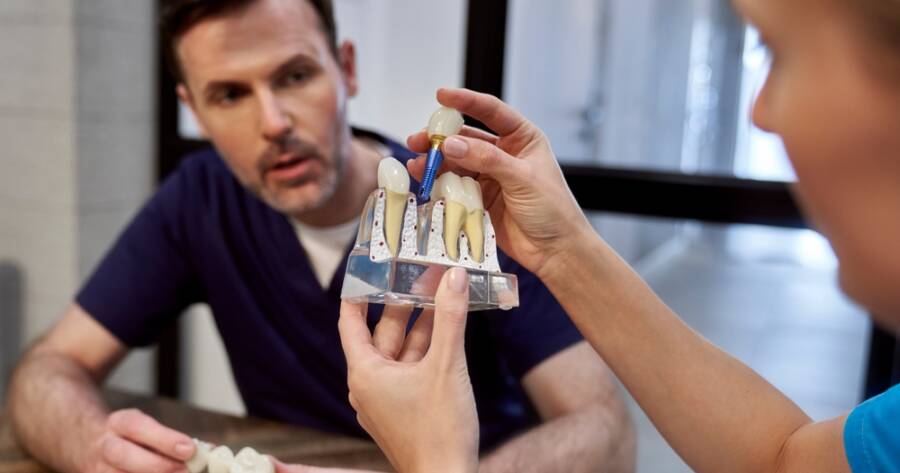Dental implants have revolutionized tooth replacement by providing a permanent, durable, and natural-looking solution for missing teeth. While dental implants are already a well-established treatment, continuous advancements in materials, techniques, and surgical procedures are being explored through clinical trials. These trials help researchers evaluate new implant materials, improved surgical techniques, and innovative technologies, ensuring that future patients receive the best possible care.
What Are Dental Implant Clinical Trials?
A dental implant clinical trial is a research study conducted to assess the safety, effectiveness, and longevity of new implant technologies and procedures. These trials may focus on:
- New implant materials (e.g., titanium vs. zirconia implants)
- Improved surgical techniques to speed up healing
- Alternative bone grafting procedures for patients with low bone density
- Advancements in digital dentistry, such as 3D-printed implants or AI-assisted surgery
- Long-term success rates of different implant systems
These trials are conducted by universities, dental schools, medical centers, and private research organizations, often in collaboration with dental implant manufacturers.
How Do Dental Implant Clinical Trials Work?
1. Study Design and Approval
Before a clinical trial begins, researchers must obtain approval from ethics committees and regulatory authorities, such as the U.S. Food and Drug Administration (FDA) or the European Medicines Agency (EMA). The study is carefully designed to ensure patient safety, ethical standards, and reliable results.
2. Participant Recruitment
Researchers look for volunteers who meet specific eligibility criteria, such as:
- Adults with missing teeth in need of an implant
- Individuals with sufficient bone density or those needing bone grafting
- Patients with healthy gums and no severe oral infections
- Individuals willing to commit to follow-up appointments
Patients who qualify for clinical trials often receive free or discounted dental implants in exchange for participating in the study.
3. Treatment and Follow-Up
Once enrolled, participants undergo implant placement using either a new technique or material being tested. Researchers monitor patients over time to assess:
- Healing and osseointegration (fusion of the implant with the jawbone)
- Success rates and complications
- Long-term implant durability and function
Participants must attend regular follow-ups for months or even years, ensuring researchers collect accurate data on implant performance.
Why Participate in a Dental Implant Clinical Trial?
1. Access to Cutting-Edge Technology
Participants get the opportunity to receive state-of-the-art dental care before it becomes widely available.
2. Cost Savings
Many clinical trials cover the cost of implants and related procedures, significantly reducing the financial burden for participants.
3. Contribution to Dental Advancements
By joining a study, participants help improve dental care for future patients, contributing to research that makes implants safer, more effective, and accessible.
4. Close Monitoring and Expert Care
Patients in clinical trials receive extensive monitoring by top dental professionals, ensuring they get high-quality care throughout the process.
Potential Risks of Clinical Trials
While clinical trials follow strict safety protocols, there are some risks involved:
- Unproven techniques or materials may have unexpected side effects.
- Healing times may differ from standard procedures.
- Follow-up appointments require a long-term commitment.
Before enrolling, participants must review consent forms carefully and discuss risks with their dentist or oral surgeon.
How to Find Dental Implant Clinical Trials
If you are interested in participating in a dental implant clinical trial, you can:
- Check university dental schools – Many dental colleges conduct ongoing research.
- Visit government databases – Websites like ClinicalTrials.gov (U.S.) or the World Health Organization (WHO) clinical trials database list active studies.
- Contact implant manufacturers – Some dental companies fund research and seek participants.
- Ask local dental clinics – Some private practices collaborate with universities on clinical trials.
Advancing Dental Implant Technology
Dental implant clinical trials are essential for improving patient outcomes, refining surgical techniques, and exploring new implant materials. These studies provide an opportunity for patients to receive advanced, potentially cost-free treatments while contributing to the future of dental care.
For those considering dental implants, enrolling in a clinical trial could be a valuable and rewarding experience, offering high-quality care and the chance to help shape the next generation of safe, long-lasting, and innovative dental implant solutions.

